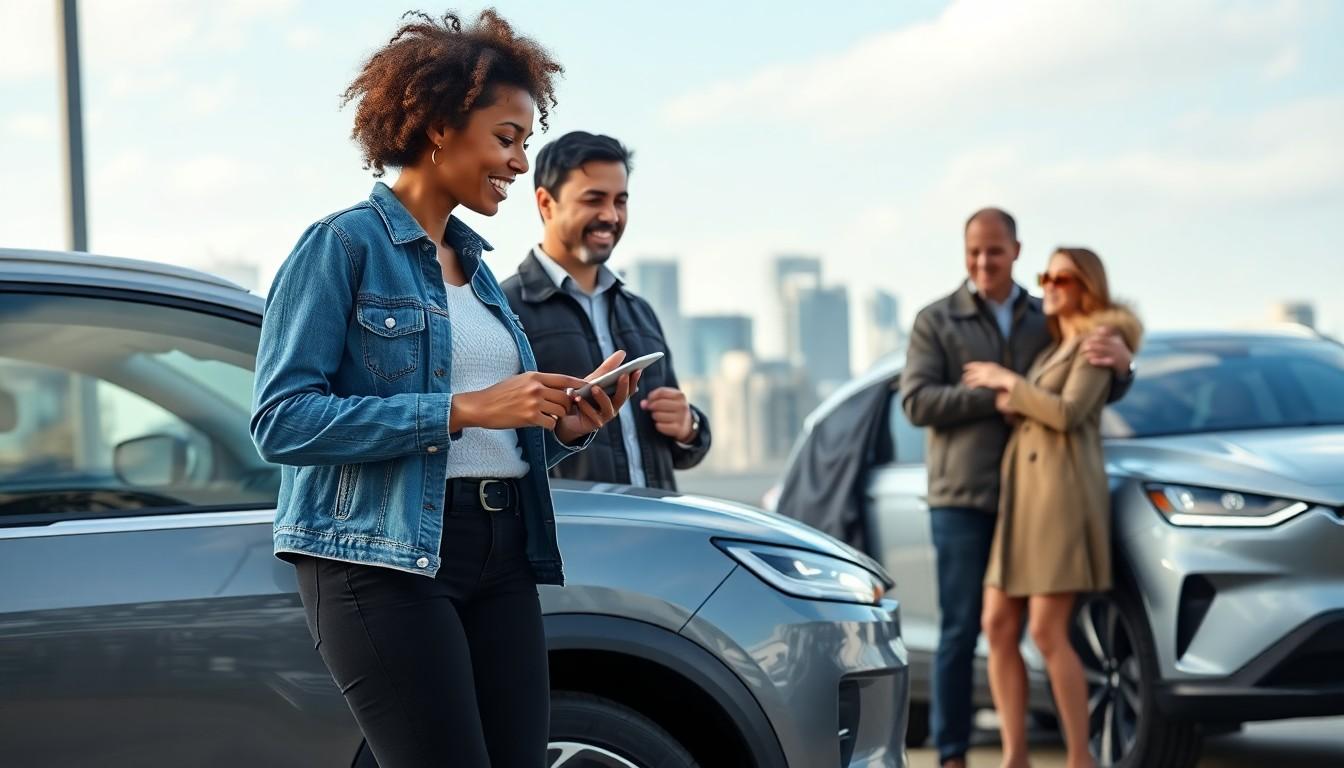In a world where cars are more than just a way to get from point A to point B, understanding auto sales trends is like deciphering the latest fashion statements of your favorite celebrities. One minute, everyone’s raving about electric vehicles, and the next, they’re head over heels for SUVs. It’s a wild ride, and for anyone in the auto industry, staying ahead of these trends is vital.
As consumers become more discerning and eco-conscious, the automotive landscape is shifting faster than a kid in a candy store. Whether it’s the rise of hybrid models or the resurgence of classic cars, the trends are as varied as a buffet line. Buckle up, because diving into these trends isn’t just informative; it’s essential for anyone looking to navigate the ever-evolving road of auto sales.
Auto Sales Trends
Auto sales trends reflect shifting consumer preferences in the automotive industry. Recent data shows significant growth in electric vehicle (EV) sales, indicating a strong pivot towards sustainability. In 2022, electric vehicles accounted for 5.6% of all US auto sales, a noticeable increase from 2.3% in 2020.
SUVs maintain their popularity among consumers, dominating the market with a 47% share in 2022. Buyers appreciate the space, versatility, and perceived safety of these vehicles. Additionally, hybrid models attract a growing segment, boasting an increase of 10% in sales from the previous year.
Classic cars also gain traction. A rise in vintage car appreciation has emerged with enthusiasts seeking rarer models, boosting values in the collector market. The resurgence of classic cars highlights a desire for nostalgia and craftsmanship.
Technology integration plays a crucial role in shaping auto purchase decisions. Many consumers prioritize features like advanced driver-assistance systems and infotainment options, elevating their buying experience. A survey indicates that 72% of car buyers consider these technological features when making a purchase.
Market fluctuations can impact sales trends. Economic factors, including interest rates and fuel prices, directly influence consumer behavior. As fuel prices rise, interest in fuel-efficient models, including hybrids and compact cars, increases.
Tracking these trends is vital for industry stakeholders. Auto manufacturers, dealerships, and investors must adapt to evolving consumer preferences. Remaining informed about sales trends supports strategic planning and ensures alignment with market demands.
Current Market Analysis

The auto market continues to evolve rapidly, marked by shifts in consumer demands and economic influences.
Key Players in the Auto Market
Top manufacturers are responding dynamically to changing preferences. Tesla leads the electric vehicle market with innovative models attracting environmentally conscious consumers. Major automakers like Ford and General Motors are investing heavily in electric and hybrid models, recognizing the growing demand. Toyota has maintained a strong foothold in hybrid technology while expanding its electric lineup. Additionally, established luxury brands are enhancing their offerings with electric options, catering to high-end buyers. Market competition is intensifying as new entrants emerge, particularly in the electric vehicle segment. Collaboration between tech companies and traditional automakers is shaping the future, focused on integrating advanced technologies and enhancing consumer experiences.
Impact of Economic Factors
Economic conditions play a crucial role in consumer behavior regarding auto sales. Rising interest rates often lead to tighter budgets, influencing buyers toward more fuel-efficient models. When fuel prices increase, consumers generally prioritize vehicles that offer better mileage. Despite economic uncertainties, the demand for electric vehicles remains robust, bolstered by incentives and evolving consumer attitudes toward sustainability. This demand is amplified by government policies promoting eco-friendly transportation. Moreover, the ongoing semiconductor shortage has limited vehicle availability, forcing consumers to reconsider their choices. Market analysts emphasize that understanding these economic drivers is essential for manufacturers seeking to align production with consumer expectations.
Historical Trends in Auto Sales
Historical trends show marked changes in auto sales preferences over the years. This evolution reflects shifts in consumer demands and advances in technology.
Year-over-Year Comparisons
Year after year, data illustrates significant transformations in auto sales. Electric vehicle sales surged to 5.6% of total US auto sales in 2022, a steep increase from 2.3% in 2020. Consumer preference strongly shifted towards SUVs, which captured a market share of 47%. Hybrid models also gained traction, with a 10% rise in sales compared to the previous year. Buyers increasingly prioritize advanced features; 72% now consider tech integration crucial in their purchasing decisions.
Emerging Markets Growth
Emerging markets are becoming critical players in the auto industry landscape. Interest in electric and hybrid vehicles is rising, driven by sustainability concerns and government incentives. Manufacturers are stepping up to meet this demand, especially in countries where consumer eco-consciousness is growing. Southeast Asia and South America show notable increases in electric vehicle adoption. This growth presents a unique opportunity for automakers to expand their reach and influence in evolving markets. The shift towards fuel-efficient vehicles continues, particularly in regions experiencing economic growth and rising urban populations.
Future Predictions
Future predictions in auto sales indicate continued evolution, with electric vehicles taking a prominent role.
Electric Vehicle Market Growth
Electric vehicle sales are projected to rise significantly, driven by increased consumer demand for sustainable options. Forecasts suggest that EVs could reach 20% of total auto sales in the U.S. by 2025, reflecting ongoing market shifts. Incentives from government programs further stimulate this growth, encouraging more consumers to consider EVs. Major auto manufacturers are expanding production capacity to meet this demand, with Tesla and Ford leading in innovation. As consumers prioritize eco-friendly choices, the momentum for electric vehicle growth will likely amplify, shaping the future of the auto industry.
Technology Innovations Impact
Innovations in technology are poised to transform the auto sales landscape drastically. Advanced driver-assistance systems are becoming essential features, as 72% of consumers prioritize them in their vehicle choices. Developments in vehicle connectivity and autonomous driving capabilities attract tech-savvy buyers looking for cutting-edge options. Manufacturers are investing in smart technologies to enhance user experience, making vehicles more appealing. Ultimately, the integration of technology influences purchasing decisions and drives competition among auto brands.
remarkable transformation
The auto sales landscape is undergoing a remarkable transformation driven by consumer preferences and economic factors. As electric vehicles gain traction and SUVs maintain their stronghold, manufacturers must stay agile to meet shifting demands. The resurgence of classic cars and the rising importance of technology in vehicle selection further illustrate the diverse interests of today’s buyers.
With projections indicating a significant rise in EV sales, the automotive industry stands at a pivotal moment. Stakeholders must remain vigilant in tracking these trends to align their strategies effectively. Embracing innovation and sustainability will be crucial for success in this evolving market.

